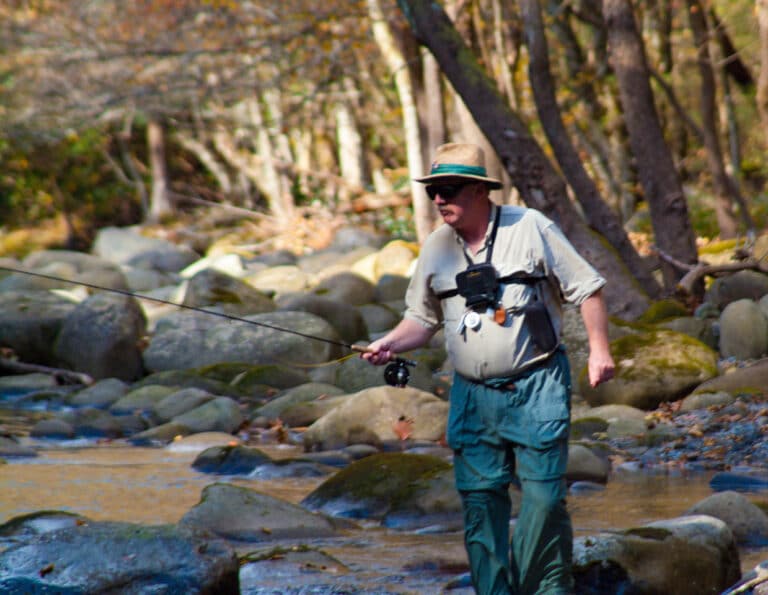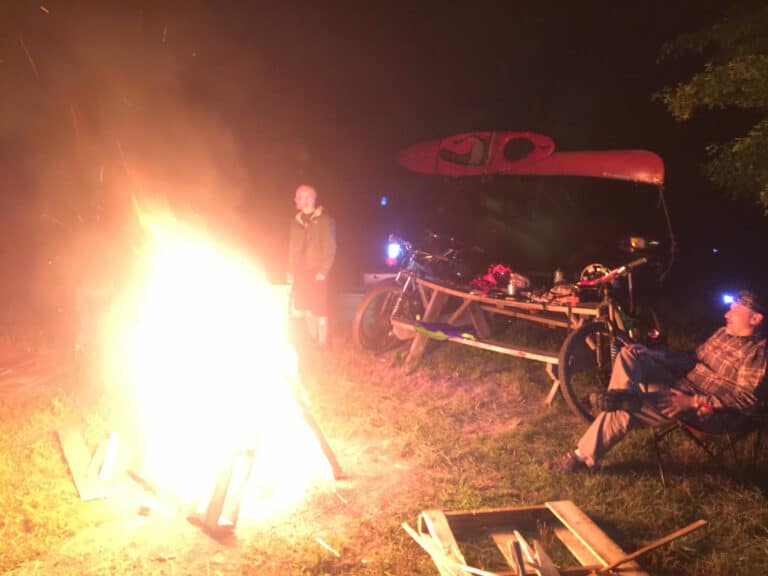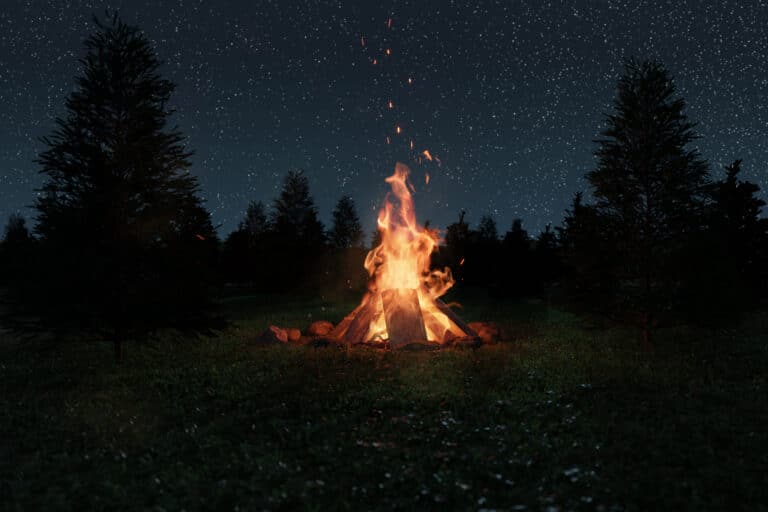A deep dive into the chilly benefits of cold water therapy
Ten years ago, Nathan Shultz hit rock bottom. In a matter of months, his father died from cancer, his marriage ended, and his corporate job gave him the pink slip.
“It was brutal,” he remembers. “I was in pieces. I cried every day and just couldn’t get a hold of myself.”
But all that changed when, at the recommendation of his yoga instructor, Shultz went to a bathhouse in New York City and plunged into a tub of freezing water. When he emerged moments later, he experienced something he hadn’t in a long time: happiness.
“It was one of the best feelings of my life,” says Shultz, who now lives in the mountains of North Carolina, where he hosts cold water therapy workshops at The Stable Spa at The Horse Shoe Farm in Hendersonville.

At its simplest, says Shultz, cold water therapy is the practice of immersing your body in 45 to 59-degree water—be that a chilly mountain stream, a frigid lake, or your bathtub—for a period of three to 10 minutes, multiple times per week.
Though this skin-numbing regimen has been around for millennia, it’s recently gained traction as wellness influencers like Wim Hof (aka “The Iceman”) and A-list celebrities like Kim Kardashian take the plunge. TikTok stars have followed suit, recording themselves chest-deep in icy water as they rattle off the many purported benefits—everything from enhanced mental clarity to increased energy.
Shultz has experienced many of these benefits firsthand. After his first dip at the NYC bathhouse, he noticed improved digestion, less inflammation, and more restful sleep. His anxiety and depression also lessened, and he felt more content in his day-to-day life.

But is the hype of cold plunging backed by science? According to Samantha Foster, a physical therapist and owner of Frostfire Sauna and Cold Plunge in Lynchburg, Va., the answer is “yes.”
Foster explains that cold water immersion works by activating a series of physiological responses.
“Initially, when someone submerges themselves in cold water, the blood vessels constrict,” she says. “But once you warm up, your blood vessels dilate again and flush out waste products like lactic acid while delivering fresh, oxygenated blood to the muscles and tissues.”
Research shows that this phenomenon helps with muscle recovery. Some studies also suggest it might regulate blood sugar, boost the immune system, and reduce chronic inflammation.

Cold plunging can help our brains, too. In a pilot study conducted by the University of Portsmouth, 50 people went swimming off the coast of England. After eight splashy sessions, all experienced “remarkable” improvements in their anxiety and depression symptoms.
Here’s why: Diving into breathtakingly brisk water stimulates the release of key hormones in the brain, including dopamine, serotonin, and endorphins. (In one study, for instance, cold water immersion led to a 250 percent increase in dopamine levels.) These feel-good chemicals improve mood—a big perk for Virginia resident Matthew Simpson.
In 2005, Simpson injured his back in the Army and couldn’t walk for an entire year. During this dark time, he developed an opioid addiction. “I became what they would classify as a ‘high-functioning addict,’” he says.
Determined to turn his life around, Simpson began exploring alternative interventions like hyperbaric oxygen therapy and sensory deprivation tank therapy. Then, two years ago, he discovered cold plunging. He has been plunging multiple times per week ever since.

“Cold plunging has helped me learn how to deal with my emotions,” he says. “It’s about conditioning the mind. You can think of it like mental jiu-jitsu.”
Shultz agrees with Simpson’s assessment, explaining that many of his clients use cold plunging to trigger a fight-or-flight response. Though this may sound counterintuitive, exposing yourself to controlled stress improves your ability to manage stress in real-world situations.
“You’re learning to regulate that response in a safe environment,” says Shultz. “You’re learning to chain the beast.”
Of course, cold plunging isn’t for everyone. Individuals with medical issues should definitely consult their doctor before diving in. But for Shultz, keeping it cool has been life-changing.
“Ten years ago, I had depression and massive anxiety. I just felt a ton of stress in my life,” he says. “But I’ve kicked all of it.”

Jump In
Craving an icy thrill? Here are two spots in the Southeast to take a frigid dip.
Drip Sauna
Asheville, N.C.
If you want to freeze your butt off while enjoying a stunning view, check out Drip Sauna. Nestled on mountain property overlooking the French Broad River in Asheville, Drip features outdoor cold plunges as well as handcrafted wood-fired saunas.
“At its core, Drip Sauna is about the simplicity of ancient practices and the beauty of Western North Carolina,” says co-founder Daniel Ratner. “Whether you’re sweating in a sauna, plunging into icy water, or just sitting outside around the fire taking it all in, Drip invites you to slow down, embrace the elements, and reconnect to yourself and the world around you.”
According to Ratner, the property can be booked for solo sessions. He can also deliver the mobile sauna and cold plunge to your home for a unique date night or memorable afternoon with the bros.
The Shala
Huntington, W.Va.
Eva Wolski-Ball is a big believer in the benefits of cold water therapy, describing it as “one of the most transformative” services she offers at The Shala in Huntington, W.Va.
“It’s designed to reduce inflammation, enhance circulation, boost energy, and sharpen mental clarity,” she says. “The experience might be invigorating, but the benefits last far beyond the plunge.”
After spending some time in the plunge tub at The Shala, you might sit in the infrared sauna, get a deep-tissue massage, or even treat yourself to an IV infusion.
“Our menu of services is thoughtfully designed to meet the physical, mental, and emotional needs of our clients,” says Wolski-Ball. “We’re here to create an experience that’s just right for you.”
Cover photo: Experience fire and ice at Drip Sauna in Asheville, N.C. Photo courtesy of Drip Sauna








